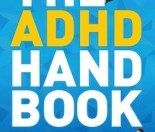‘Why does the moon change’, ‘why do clouds float’, ‘why does wind blow’, ‘Why? Why? Why?!’ is repeated incessantly by children between approximately 3-5 years old, sometimes to their parents’ and caregivers’ distraction. This is the age when children begin to learn how to learn. And our chance to instil in them a love for learning.
Children are glorious sponges with an inborn curiosity about their world, and beyond.
Humans are unique in wanting to explore beyond perceived limits. We want to nurture this birthright in our children as much as we can.
How can we help create growing minds? How can we find the balance between over-instruction that throws our worldview onto them, and a totally hands off leave-them-to-it approach?
‘Why’ Mummy? Encouraging a love to learn
At childcare we can see some parents methodically explaining something to their child, not paying attention to when the child’s attention has waned. We cringe, knowing that children will stop asking questions if the parent doesn’t match the answer to the question.
We also see the parents who brush off their child’s question, too busy to answer, or too distracted about getting to work.
No one is at fault, every parent is just trying to do the best they can with their resources they have and based on the parenting they received.
I copied my father’s approach when besieged by my son’s 3 year old ‘why’s’. I would ask him, ‘well, what’s your guess?’ before hazarding my own. I felt it was more important for him to challenge his thinking than for me to truncate it by being the ‘expert’.
At 15, he is a critical thinker, graciously challenging my own and society’s ideas.
Modeling curiosity is arguably the most effective way to help our children become lifelong learners. That means approaching new (and especially threatening) situations or information with a willingness to look at it with fresh eyes.
We spark a love of learning if we show genuine interest in what our children are interested in.
Think expansively, life is about and, and, and…
I was stuck on a long bus ride in Argentina once with a retiree who budget travels around the world for several months each year.
I say stuck because contrary to my expectations that he would be in a state of curiosity and openness, instead he talked incessantly about himself and his entrenched views! This despite my happening to have in-depth knowledge about some of the topics he discussed.
This was the first time I was interested in the barely audible, subtitled movie being played on the bus.
Being a therapist, he had a trained listener as his fellow passenger. I was quite sad for him that he was missing out on learning, and curious about his lack of openness.
Surprisingly, when we got off the bus he gave me a hug, saying how nice it was to meet me. I realised that he based satisfying connection on being listened to rather than in sharing perspectives.
In the last few minutes of our long journey he asked me his first question.
As the oldest guest in budget hostels he is often seen as the elder and asked what he’s ‘learned about life’. He asked me how I would answer the question.
I reflected for a while, then said that in my fifties I am understanding the world from a non-binary view. That is, instead of exploring questions from an ‘if/then’, reductionist place, I’m thinking more in a ‘both/and’ expansionist way. There are so many possible reasons to explain an observation, rather than just one.
As the acclaimed author, Ali Smith, says in an interview,
Human beings need to take in all the possibilities of rhetoric, all the varieties and versatilities… It isn’t either/or. It’s and/and/and. That’s what life is.
When parents ask me to explain a troubling behaviour they witness in their child, I invite a broad, open investigation of the context rather than staying in an expert role and its tendency to find a quick diagnosis and treatment of an individual.
I invite the child to explore with us. They always know the answer! As a whole family with a therapist alongside, a solution can be found.
Here’s some pointers to ponder the next time your child asks you ‘why?’:
- Encourage your child to read, and to read broadly. Fiction, non-fiction, funny, factual and fantasy should all be enjoyed
- Explore your child’s understanding of a book they’ve read, or a movie they’ve watched, or any media
- Encourage imagination by showing interest in your child’s ideas, even if you think they’re not ‘real’
- Continue to expand your own ways of looking at the world, challenge your own preconceptions, and model this to your child
- Associate with people different to your family to expand your child’s perspective on the world
- Love to learn yourself, then teach your children the love of learning!






